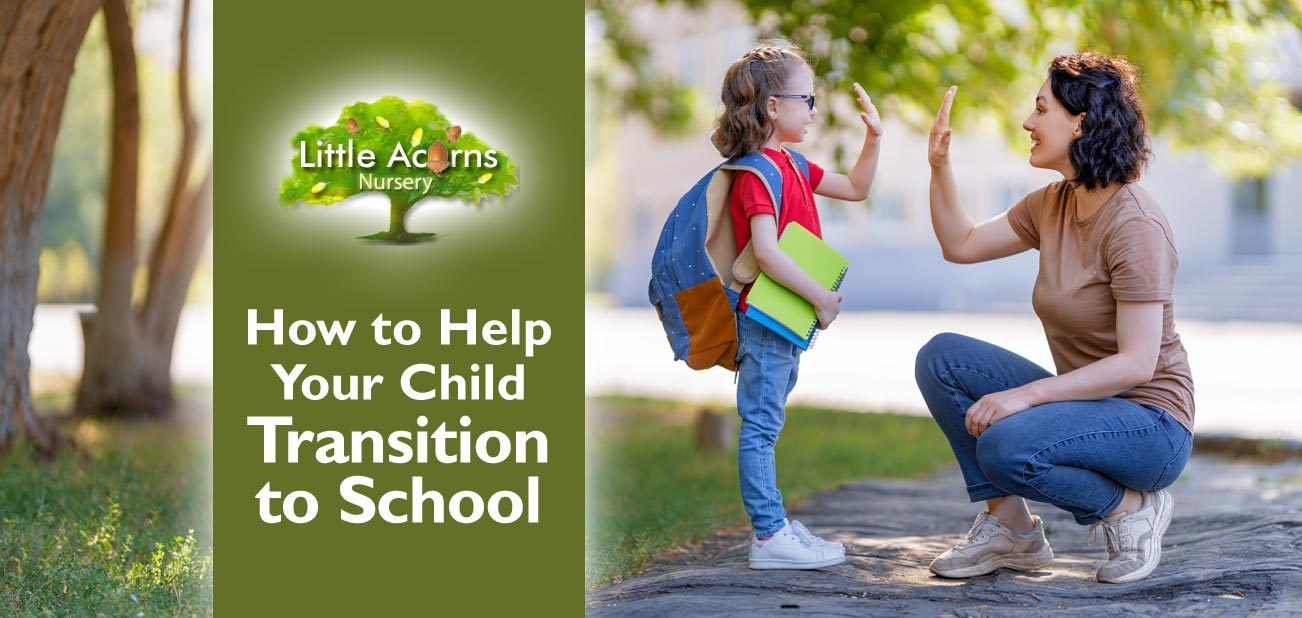
 Beginning school is a huge milestone for any child as well as for the child’s parents or guardians. Whether transitioning from nursery/preschool or straight from home, beginning school can be a daunting step in a child’s life — especially if they’re unprepared. Today’s post therefore aims to help parents/guardians make the transition to school as easy and stress-free as possible for their child, so they are empowered to feel at home and hit the ground running from the moment they begin. Take a look, therefore, at our guide on How to Help Your Child Transition to School. Following the advice should help make this milestone plain sailing for everyone involved.
Beginning school is a huge milestone for any child as well as for the child’s parents or guardians. Whether transitioning from nursery/preschool or straight from home, beginning school can be a daunting step in a child’s life — especially if they’re unprepared. Today’s post therefore aims to help parents/guardians make the transition to school as easy and stress-free as possible for their child, so they are empowered to feel at home and hit the ground running from the moment they begin. Take a look, therefore, at our guide on How to Help Your Child Transition to School. Following the advice should help make this milestone plain sailing for everyone involved.
Prepare Your Child Well in Advance
The most impactful measure for a smooth transition to school is thorough preparation. As the old saying goes, “Fail to prepare — prepare to fail” meaning you should ensure good preparation if a successful outcome is to be achieved. And, by definition, preparation is required in advance of the school start date. The remaining tips below are all part of that preparation and, as you’ll see, some will be required well in advance.
Well in Advance:
Ensure a Good Early Years Education for Your Child
 One of the most critically important steps for a smooth transition to school is to ensure your child receives a comprehensive early years education. By this we mean they need to have been nurtured between birth and school age in all areas of their learning and development — ideally including the seven key areas of the Early Years Foundation Stage (EYFS). In essence, they will need help with their communication and language, physical development, personal, social & emotional development, literacy, mathematics (watch out for our separate post on that coming soon), understanding of the world, and expressive art and design. With such skills and knowledge under their belt before the age of five, they will be incredibly well-equipped once they begin school. Without them, they will find the transition difficult and may even be held back.
One of the most critically important steps for a smooth transition to school is to ensure your child receives a comprehensive early years education. By this we mean they need to have been nurtured between birth and school age in all areas of their learning and development — ideally including the seven key areas of the Early Years Foundation Stage (EYFS). In essence, they will need help with their communication and language, physical development, personal, social & emotional development, literacy, mathematics (watch out for our separate post on that coming soon), understanding of the world, and expressive art and design. With such skills and knowledge under their belt before the age of five, they will be incredibly well-equipped once they begin school. Without them, they will find the transition difficult and may even be held back.
Early Years Education at Nursery & Preschool
Such an early years education is also available, of course, via outstanding childcare services like those available at Little Acorns Nursery in Clayton-le-Woods. High-quality settings like ours nurture every aspect of children’s learning and development. Through a programme that’s tailored for every child, we do everything we can to ensure they achieve personal bests in every area and are as school-ready as possible by the time they leave us to begin school. With all that achieved, they are sure to thrive from the moment they start. Learn more about why children benefit by going to a good nursery/preschool here.
Close Parental Involvement in Your Child’s Education
Parents/guardians can and ideally should help with this early years education from home too. Indeed, close parental involvement in a child’s education has been shown to be hugely beneficial to that child, with far-reaching short- and long-term benefits. Studies have shown that such children are much higher achievers at school than those who did not receive regular educational support from parents. Follow the bold link to learn more.
Read With Your Child to Super-Charge Language Skills
Reading with your child from an early age has also been proven to be hugely beneficial to children. Studies show that, by reading with them regularly – including before the age of five – their language skills will receive a massive boost and this will help them enormously once they begin school. Reading with (not just to) children can boost the language skills of preschoolers by the equivalent of 8 months — incredible when you think about it. Comprehension, vocabulary, creativity, knowledge, literacy, and even empathy skills are improved when parents regularly read with young children. A love of books and reading is also a natural extension of this and, again, this can only help children once they’ve started at school. Learn more about how you can Super-charge Your Child’s Education Through Reading here.
Nurture Independence, Social & Soft Skills
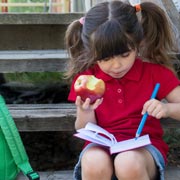 During their journey from birth to school age, it’s also important to nurture children’s independence, social skills and soft skills.
During their journey from birth to school age, it’s also important to nurture children’s independence, social skills and soft skills.
- Ensuring independence will make them feel more in control and self-assured once they start school. For example, help them learn to wash hands, tie shoe laces, use zips and buttons on clothing and be able to dress themselves. Parents can help children accomplish all of these by demonstrating each and encouraging practising at home.
- Parents can also encourage good social skills in children while at home, so they are polite and naturally more likeable once they start school. So, try to nurture skills like good manners, understanding right from wrong, mastering negotiations with peers, sharing, helping others and generally being able to make and keep friends. Parents can encourage socialising with friends and relatives of a similar age to accomplish such things.
- Additional soft skills will help little ones thrive as well as fit in and be positively viewed once they begin school. Examples of soft skills to nurture in children before they begin school include good communication (verbal as well as non-verbal), listening, an understanding of empathy, cooperation, teamwork, negotiation, problem-solving, resilience, adaptability, good organisation, creativity, resilience and time management. Mastering these will stand children in very good stead at school.
In the Weeks Running Up to Starting School:
 When starting school is only a few weeks away, there are several small but impactful things you can do to better prepare your child for the transition:
When starting school is only a few weeks away, there are several small but impactful things you can do to better prepare your child for the transition:
- Forewarn your child that they’ll be starting school soon and give them further reminders as the start date draws closer. This will avoid any nasty shock when the day arrives and help prepare their mindset.
- Talk about it often as the day draws nearer. Encourage questions, answer them, and listen to any misgivings your child may have. Reassure your child whenever they seem apprehensive.
- Focus on the positives of school, such as all the new friends they’ll make, all the new activities they’ll participate in, new play equipment and sports facilities, and how school can be a huge adventure.
- Show them the school, initially through a brochure or website and later during an organised visit where you can both ask questions during the tour. This will help them feel more at home when they arrive as well as helping them know what to expect.
- Find a friend who will also be attending the same school and the same class. Perhaps one of their peers from nursery/preschool may be attending — perfect if so. If not, ask around to find someone who is and arrange play dates so the children can get acquainted in advance. Knowing they will have a friend there in advance is going to help your child hugely once they start school.
- Ensure your child gets ample sleep, especially in the run-up to starting school, otherwise, they’ll struggle to stay awake or concentrate at school. Sleep is incredibly good for children anyway.
- Allow children to sync their body clocks with the hours they’ll be awake once they begin school. So, set a suitable bedtime and getting up time for your child in the weeks before school starts — and stick to it. Towards bedtime, allow your child to gently wind down and ensure they avoid the use of electronic screens (TVs, iPads etc.) during this period. It will help your child get to sleep.
- Purchase/source any uniform, Wellington boots, shoes, clothes, backpack and PE kit required for school, ensuring it’ll all be the right size for your child once they begin. It’s a good idea to put your child’s name on each item too. Check with your child’s school what else they may need, for example, stationery, lunch box, etc.
- Practise the school route. A dummy run along the route to school on a weekday is a great idea during the week before your child begins school. Time it to coincide with the real schedule you’ll be following once your child is attending so that you’ll get a feel for how much traffic there will be. Make any adjustments needed so you’ll not be late when the time comes.
On the Day Before the 1st Day of School:
 Pack your child’s backpack and ensure it includes everything they’ll need. For example, perhaps a snack and/or lunch box, any spare clothes, PE kit, stationery if needed, and so on.
Pack your child’s backpack and ensure it includes everything they’ll need. For example, perhaps a snack and/or lunch box, any spare clothes, PE kit, stationery if needed, and so on.- Ensure everything is labelled with their name, as appropriate.
- Go through the backpack with your child so they know what’s in there and where everything is.
On the Day:
 Be on time. Dropping off or picking up late will stress both you and your child out!
Be on time. Dropping off or picking up late will stress both you and your child out!- Don’t fuss; it’ll only make your child more nervous.
- Remind your child that you’ll be there to pick them up at the end of the school day.
Outstanding Childcare & Early Years Education in Clayton-le-Woods, Chorley
Award-Winning Weekday Childcare Services in Central Lancashire


Little Acorns is an outstanding nursery and preschool located in Clayton-le-Woods, Chorley. This is backed up by our prestigious Best Individual Nursery Award and an ‘Outstanding Provider’ status from Ofsted. So, if you’d like your baby, toddler, or preschooler to have the very best start in life, consider Little Acorns Day Nursery. We’ll bring out the very best in them and do everything possible to ensure they’re as ready as possible by the time they leave us to begin school.
Please select an option from the buttons below to get started on your application, ask a question or request a guided tour with your little one.
Little Acorns Nursery is also conveniently close by for families in Clayton Brook, Clayton Green, Thorpe Green, Pippin Street, Buckshaw Village, Whittle-le-Woods, Farington, Bamber Bridge, Lostock Hall, Euxton, Leyland and Penwortham.

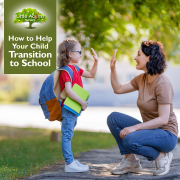
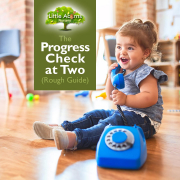
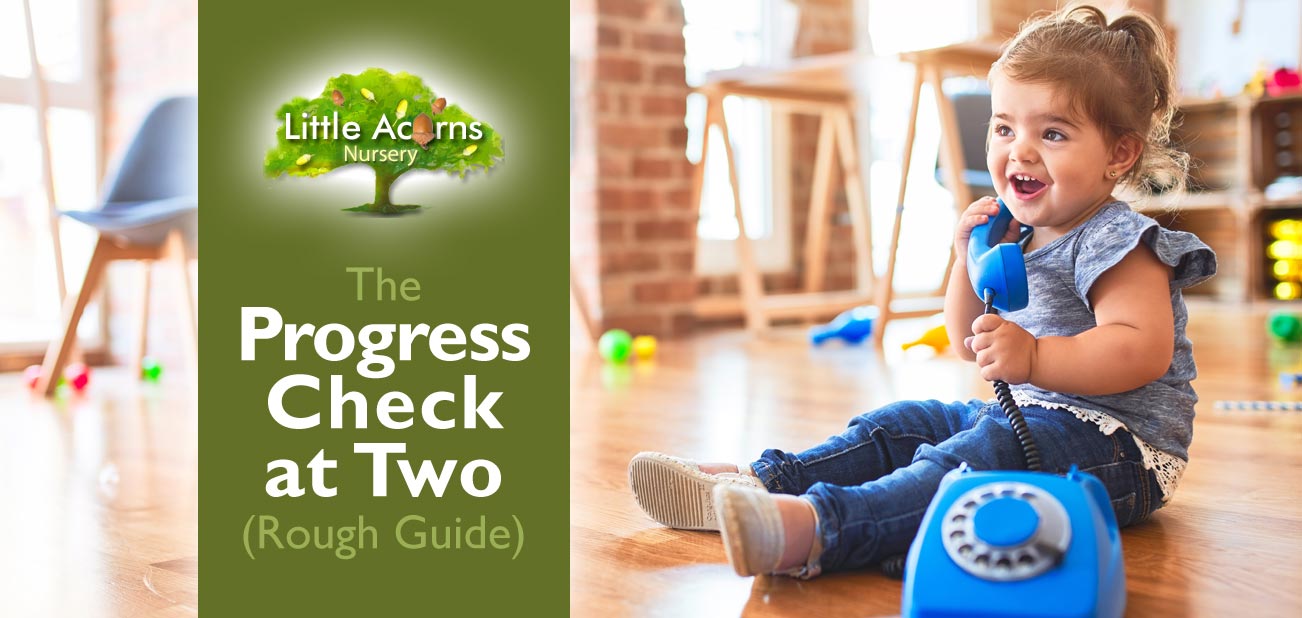
 Every 2-year-old attending registered childcare settings in England is subject to what’s known as a ‘Progress Check at 2’. Today we explain what it entails, who is involved and how it benefits little ones. Here’s our rough guide to the Progress Check at 2:
Every 2-year-old attending registered childcare settings in England is subject to what’s known as a ‘Progress Check at 2’. Today we explain what it entails, who is involved and how it benefits little ones. Here’s our rough guide to the Progress Check at 2: The Progress Check at 2 should not be confused with the Healthy Child Programme’s 2-Year Review that 2-year-olds also undergo around the same age. While the ‘Progress Check at 2’ looks at the child’s learning and development progress and is the topic of today’s guide, the separate ‘2 Year Review’ is more about the child’s health and wellbeing and is undertaken by healthcare professionals like health visitors. They will look at things like overall health, immunisation uptake, physical and mental health and development, overall wellbeing and support levels from parents, carers or guardians.
The Progress Check at 2 should not be confused with the Healthy Child Programme’s 2-Year Review that 2-year-olds also undergo around the same age. While the ‘Progress Check at 2’ looks at the child’s learning and development progress and is the topic of today’s guide, the separate ‘2 Year Review’ is more about the child’s health and wellbeing and is undertaken by healthcare professionals like health visitors. They will look at things like overall health, immunisation uptake, physical and mental health and development, overall wellbeing and support levels from parents, carers or guardians. The three ‘prime’ areas of the Early Years Foundation Stage (EYFS) curriculum are also the core focus areas of the Progress Check at 2. Hence, the checks will look to see how well the child is progressing primarily in their:
The three ‘prime’ areas of the Early Years Foundation Stage (EYFS) curriculum are also the core focus areas of the Progress Check at 2. Hence, the checks will look to see how well the child is progressing primarily in their: The core idea behind the Progress Check at 2 is to discover whether progress is at expected levels for the child’s age and development.
The core idea behind the Progress Check at 2 is to discover whether progress is at expected levels for the child’s age and development.